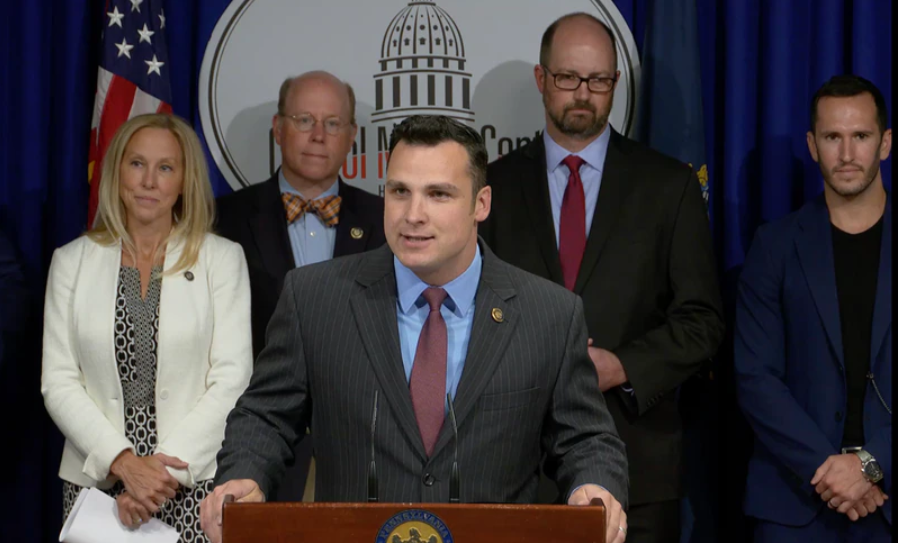
A Pennsylvania lawmaker has introduced legislation that would establish a state-funded education savings account that families could use to cover the cost of private school tuition or homeschooling.
Rep. Andrew Lewis’ Excellent Education for All Act would create Keystone Hope Scholarships, increase funding for the state’s tax credit program for businesses that fund scholarships, propose changes to the state’s charter school law and exempt learning pods from state regulations and monitoring.
“The time has finally come to break down the barriers to an excellent education and focus in Pennsylvania on funding students, not on unaccountable systems,” Lewis said at a news conference Thursday at the state Capitol, calling the bill a “game changer” that will guarantee all families access to an excellent education regardless of their ZIP code or their children’s individual learning needs.
The bill drew immediate opposition from the Pennsylvania State Education Association, which insisted it will divert state funds from public schools. Lewis maintains the financial harm from the scholarship program to most school districts would be modest since districts would retain all the local revenue they generate from property taxes.
School choice proponents in Pennsylvania have tried for two decades to expand options for families. Their biggest success has come via an increase in the amount of money for education-related tax credit programs. This year, the Educational Improvement Tax Credit program saw its biggest expansion with a $40 million increase, boosting its funding to $225 million.
State Rep. Dawn Keefer pointed to the experience of other states that have private school choice programs in increasing parental satisfaction and involvement, providing better occupational opportunities for lower-income children, and incentivizing school districts to better meet the needs of students.
“The bottom-up approach of a market-based education system means that parents are education providers,” Keefer said.
Corey DeAngelis, national research director for the American Federation for Children, attended the news conference and expressed his support for the legislation.
“Education funding is supposed to be about educating children, not for propping up a particular institution,” he said. “That’s why we should fund students directly as opposed to funding systems.”


